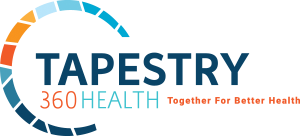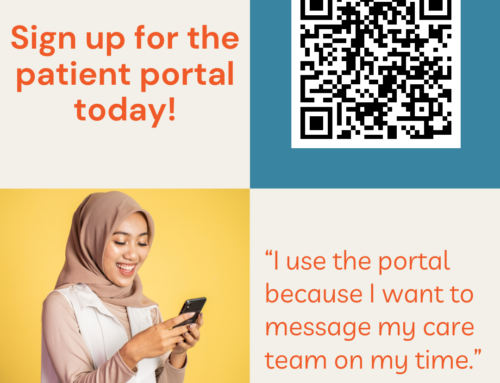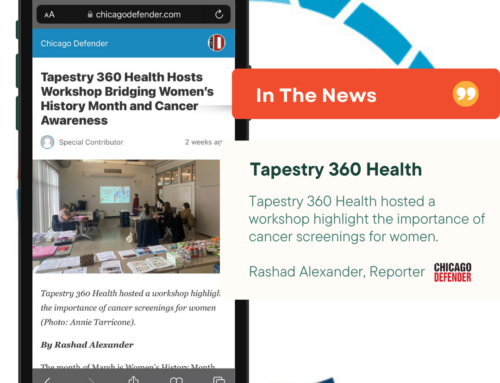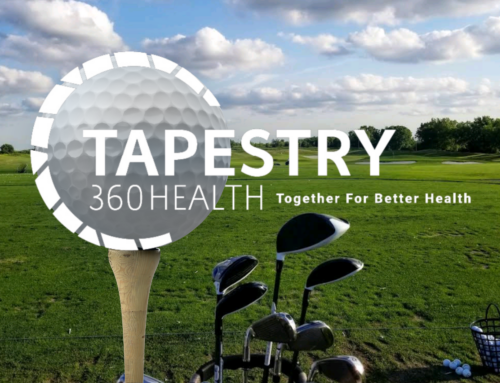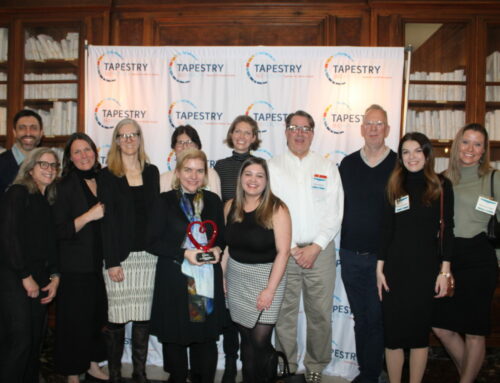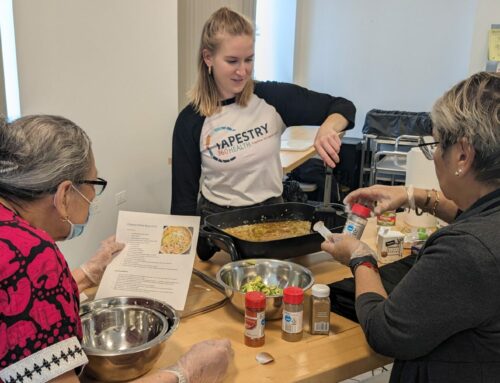News
Journeys of Resilience: Refugees in America Share Their Stories of Overcoming Adversity and Finding Hope at Tapestry360Health
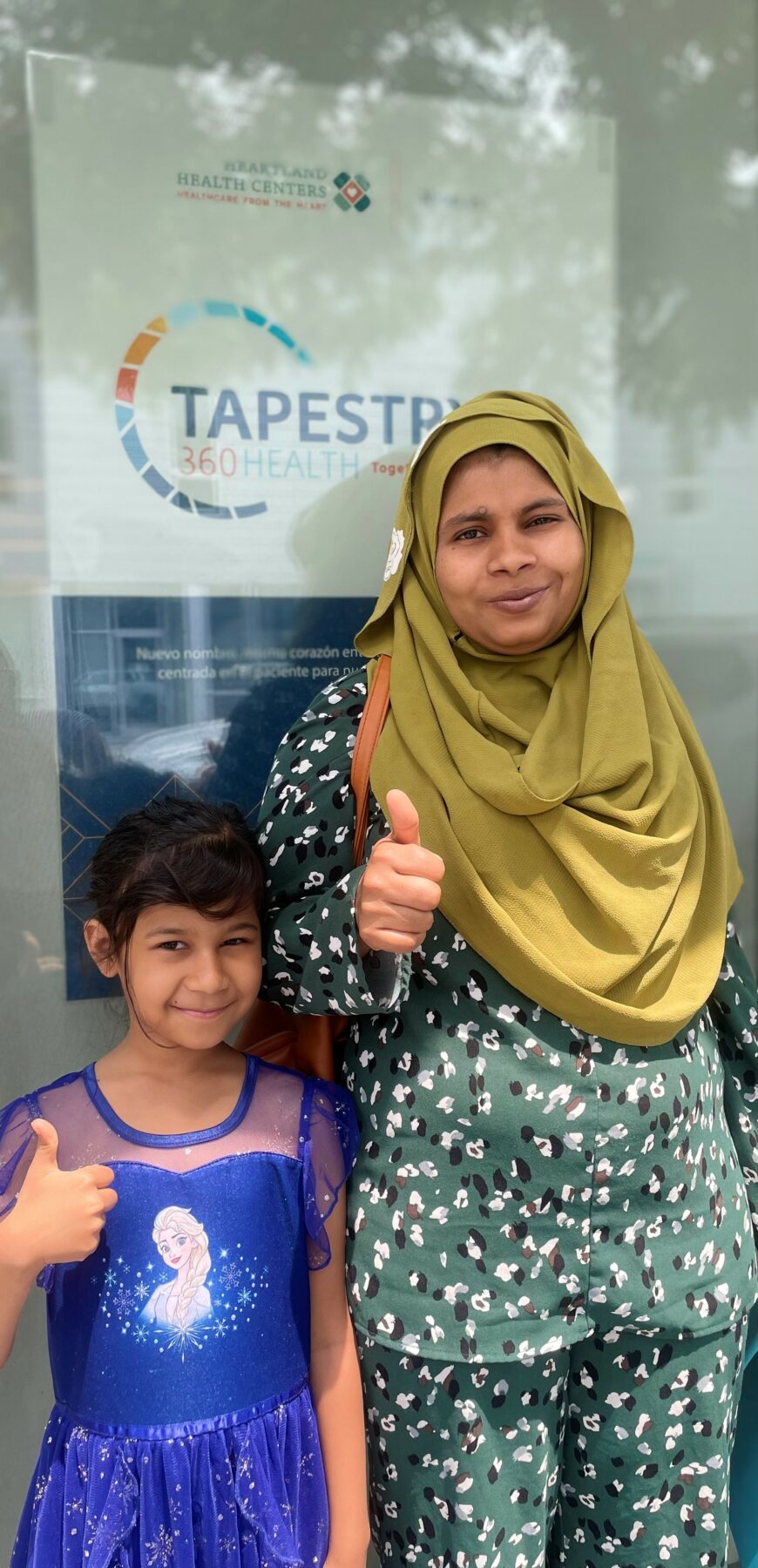
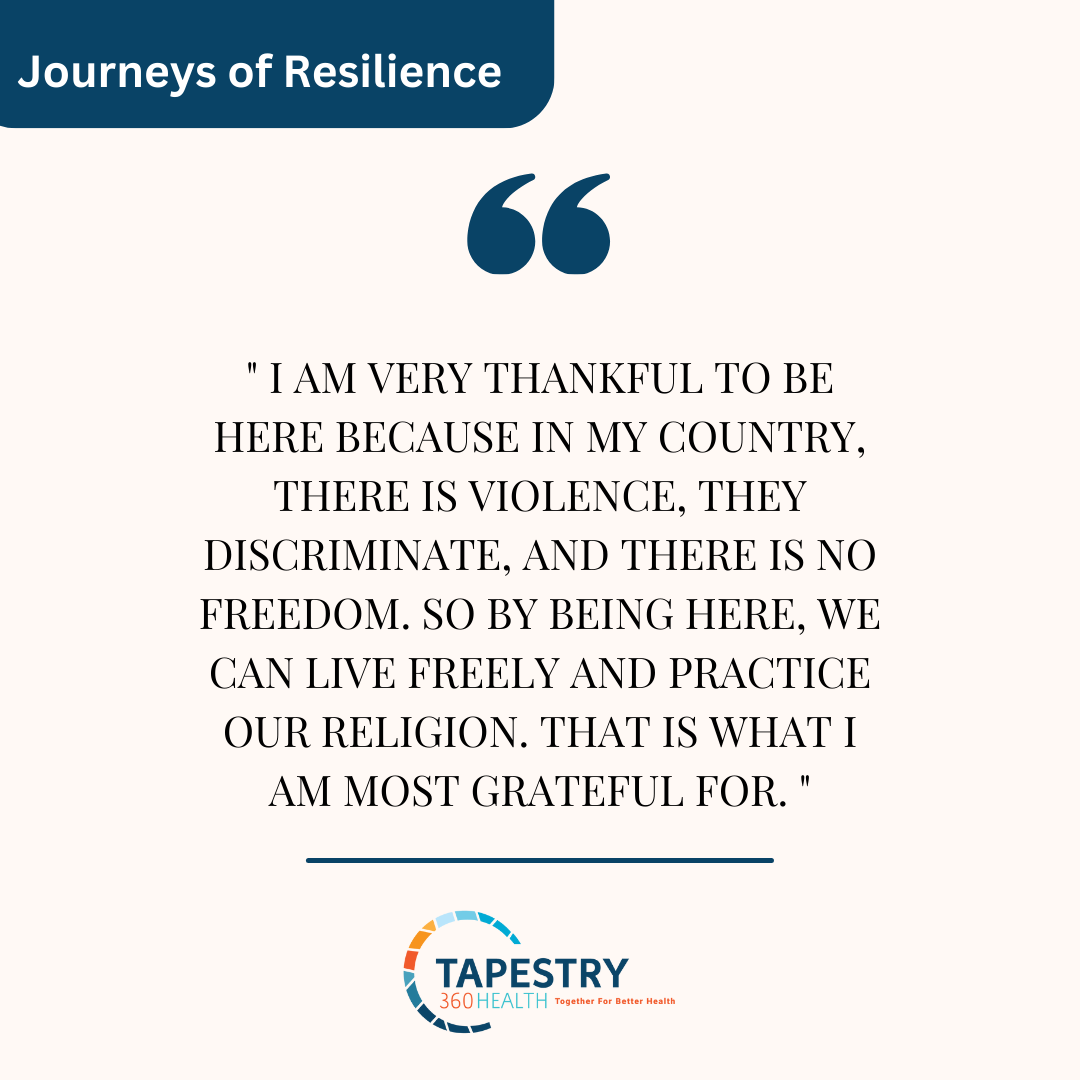
It was a cold and snowy day when Hasinah Mohomad and her family arrived in Chicago from Malaysia. It was February 2023, and Hasinah had survived 10 years in a refugee camp.
“I am originally from Burma. I arrived in [America] in February 2023. Before arriving, my family fled Burma to Bangladesh when I was seven years old because of the genocide. While in Burma, I was hit in the back of the head, making it difficult to remember things. I believe I was in a refugee camp for 10 years. These are estimates because we do not have proof or a birth certificate to confirm my age.”
While at the Bangladesh refugee camp, Hasinah was separated from her family. She then moved to a refugee camp in Malaysia for another 10 years, where she experienced a series of tribulations, including violence and discrimination.
“While in Malaysia, we experienced a lot of discrimination because of our religion and culture. It was hard to work and make a living. We struggled to live a basic life. I met my husband and my in-laws while at the refugee camp. I also had my child.”
The process for refugees can be challenging to navigate once they come to the U.S. Still, the journey to arrive is even more difficult. Individuals are required to receive a referral to the U.S. Refugee Admissions Program (USRAP) for consideration as a refugee. If they receive a referral, they will receive help filling out their application and then be interviewed abroad by a USCIS officer who will determine whether they are eligible for refugee resettlement.
“We had to interview to be approved to move to the U.S. Once my family was approved, we moved here. [Chicago] My in-laws are still at the refugee camp.”
Situations like this are, unfortunately, very normal. Refugees are only eligible to petition for immediate family members, including the child, spouse or parent of the person requesting reunification. To be considered a “child,” the person must be unmarried and under 21 years of age. All other family members, such as siblings, cousins, and adult children, are not eligible for family reunions. Typically, the average is six years that a refugee goes through the application process before their claim comes up to bid. And very few individuals actually garner refugee status. Less than 1% of the world’s population becomes refugees.
Like millions of others, Hasinah arrived in the U.S. hoping to achieve the American dream. When asked what were her first thoughts when she entered the U.S., she replied, “Grateful.”
“The one thing that touched my heart when I arrived is that we will be able to get an education for our kid and provide her with a bright future and that we will be able to live peacefully without discrimination. We really came to this country with that hope.”
So far, her transition to the U.S. has been tolerable. Once she arrived, she was set up with a case manager who helped her apply for food assistance, transportation, and a medical home, Tapestry 360 Health.
Tapestry 360 Health aims to offer culturally appropriate care to newly arrived populations in partnership with communities. As part of the primary care medical home model, Tap 360 Health provides patients with physical and behavioral health, dental care, integrative medicine, and more. Tap 360 Health receives support from the state of Illinois through funding from the U.S. Office of Refugee Resettlement (ORR), an agency whose mission is to provide new populations with the opportunity to achieve their full potential in the United States. Tap 360 Health offers two programs in partnership with ORR:
“Tapestry 360 Health is very good. I got many treatments when I arrived that I needed. The doctors are very useful. They helped me get the medication that I needed for my family. Everything is fine, we are getting all of the services we need at Tapestry 360 Health. We have no issues with the clinic.”
Hasinah has even made a friend who helps her and her family navigate throughout the city.
“We like it here. We feel very accessible to our people. They help us. I made a friend named Laura, who feels like family. We go to the beach. She helps me. She is very kind. I speak to her 3 times a week.”
Though Hasinah and her family have been receiving basic resources to assist with food, shelter, and medical needs, there are still a few things that Hasinah needs to help with her transition to America.
“We are uneducated, so it is hard to teach our kid. It would be nice to have a teacher to pop by to teach us and my kid. That would help with communicating with the doctor and when we take the bus for transportation. We get lost sometimes while riding the bus.”
Despite the hardships, Hasinah is very grateful for her newfound freedom and is eager to help other newly settled refugees on their journey in Chicago.
“I am very thankful to be here because, in my country, there is violence, they discriminate, and there is no freedom. So by being here, we can live freely and practice our religion. That is what I am most grateful for.”
Tapestry 360 Health offers quality healthcare services to patients regardless of immigration or insurance status. To learn more about the refugee health program, visit the Tapestry 360 Health website today or send our refugee health team an email at [email protected].
*This interview was conducted with the use of an Interpreter from Stratus. Interpreter ID# 96414

It was a cold and snowy day when Hasinah Mohomad and her family arrived in Chicago from Malaysia. It was February 2023, and Hasinah had survived 10 years in a refugee camp.
“I am originally from Burma. I arrived in [America] in February 2023. Before arriving, my family fled Burma to Bangladesh when I was seven years old because of the genocide. While in Burma, I was hit in the back of the head, making it difficult to remember things. I believe I was in a refugee camp for 10 years. These are estimates because we do not have proof or a birth certificate to confirm my age.”
While at the Bangladesh refugee camp, Hasinah was separated from her family. She then moved to a refugee camp in Malaysia for another 10 years, where she experienced a series of tribulations, including violence and discrimination.
“While in Malaysia, we experienced a lot of discrimination because of our religion and culture. It was hard to work and make a living. We struggled to live a basic life. I met my husband and my in-laws while at the refugee camp. I also had my child.”
The process for refugees can be challenging to navigate once they come to the U.S. Still, the journey to arrive is even more difficult. Individuals are required to receive a referral to the U.S. Refugee Admissions Program (USRAP) for consideration as a refugee. If they receive a referral, they will receive help filling out their application and then be interviewed abroad by a USCIS officer who will determine whether they are eligible for refugee resettlement.
“We had to interview to be approved to move to the U.S. Once my family was approved, we moved here. [Chicago] My in-laws are still at the refugee camp.”
Situations like this are, unfortunately, very normal. Refugees are only eligible to petition for immediate family members, including the child, spouse or parent of the person requesting reunification. To be considered a “child,” the person must be unmarried and under 21 years of age. All other family members, such as siblings, cousins, and adult children, are not eligible for family reunions. Typically, the average is six years that a refugee goes through the application process before their claim comes up to bid. And very few individuals actually garner refugee status. Less than 1% of the world’s population becomes refugees.
Like millions of others, Hasinah arrived in the U.S. hoping to achieve the American dream. When asked what were her first thoughts when she entered the U.S., she replied, “Grateful.”
“The one thing that touched my heart when I arrived is that we will be able to get an education for our kid and provide her with a bright future and that we will be able to live peacefully without discrimination. We really came to this country with that hope.”
So far, her transition to the U.S. has been tolerable. Once she arrived, she was set up with a case manager who helped her apply for food assistance, transportation, and a medical home, Tapestry 360 Health.
Tapestry 360 Health aims to offer culturally appropriate care to newly arrived populations in partnership with communities. As part of the primary care medical home model, Tap 360 Health provides patients with physical and behavioral health, dental care, integrative medicine, and more. Tap 360 Health receives support from the state of Illinois through funding from the U.S. Office of Refugee Resettlement (ORR), an agency whose mission is to provide new populations with the opportunity to achieve their full potential in the United States. Tap 360 Health offers two programs in partnership with ORR:
“Tapestry 360 Health is very good. I got many treatments when I arrived that I needed. The doctors are very useful. They helped me get the medication that I needed for my family. Everything is fine, we are getting all of the services we need at Tapestry 360 Health. We have no issues with the clinic.”
Hasinah has even made a friend who helps her and her family navigate throughout the city.
“We like it here. We feel very accessible to our people. They help us. I made a friend named Laura, who feels like family. We go to the beach. She helps me. She is very kind. I speak to her 3 times a week.”
Though Hasinah and her family have been receiving basic resources to assist with food, shelter, and medical needs, there are still a few things that Hasinah needs to help with her transition to America.
“We are uneducated, so it is hard to teach our kid. It would be nice to have a teacher to pop by to teach us and my kid. That would help with communicating with the doctor and when we take the bus for transportation. We get lost sometimes while riding the bus.”
Despite the hardships, Hasinah is very grateful for her newfound freedom and is eager to help other newly settled refugees on their journey in Chicago.
“I am very thankful to be here because, in my country, there is violence, they discriminate, and there is no freedom. So by being here, we can live freely and practice our religion. That is what I am most grateful for.”
Tapestry 360 Health offers quality healthcare services to patients regardless of immigration or insurance status. To learn more about the refugee health program, visit the Tapestry 360 Health website today or send our refugee health team an email at [email protected].
*This interview was conducted with the use of an Interpreter from Stratus. Interpreter ID# 96414
